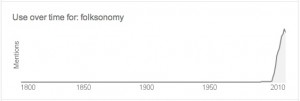In the reading this week, Landow writes about the beginning of hypertext and attempts to define and outline how it changes the reading of texts. What I derived from it, is that the beauty of hypertext lies in its nonexistent structure. You can begin wherever you may wish, and travel down whatever path interests and benefits you the most. As Adrian mentioned in the lecture this week, you don’t get this freedom when reading print texts. Sure, you have the freedom to put down the text/book whenever you lose interest, however you will always have the knowledge that there are unturned pages within its covers. For me, an unfinished book is like a silent guilt or unpleasant nag at the back of my mind.
Alternatively, Landow used blogging, as an example of where hypertext allows the existence of an ‘active reader-author, envisaged by Nelson and other pioneers'(p.78). Unlike books, when I come across a new blog, I don’t feel the incessant need to start at the first blog post ever written (arguably the beginning). Through hypertext, I can start at any of the listed archived posts and through links to other pages or entries, gather ‘context without the (blogger) having to explain again’.(p.78) I may then read comments from other users on the particular entry and reply specifically to them, or comment my own thoughts. Maybe one of the submitted comments has been done so by an expert, and I could therefore link out to his/her profile. Here, I am actively engaging in deep reading about a particular topic. I am gathering opinions from more than one person, while simultaneously contemplating and sharing my own. A book, while I cherish its physical presence, has no interactive qualities. I may write in the margins and dog tag pages to come back to, but I cannot change or add to the text itself, which will always remain static.
Hypertext, in the words of Landow, ‘moves the boundary of power away from the author in the direction of the reader’ (p.124) where the reader can choose where they enter the text, where they leave the text and what the borders of the text are. It means any internet user can be a producer of content and actively interact with a text.
This isn’t a concept which will deem hard copy books irrelevant, but rather, they will exist simultaneously and dependent on each other. This argument comes from Bolter who says that the very existence of hypertext is dependent on books, just as books can only exist because the egyptians wrote on papyrus all those years ago. There are times where handwriting is still a preferred mode of communicating, just as physical books are always going to have a place in the hypertext world.
Long live books!!

